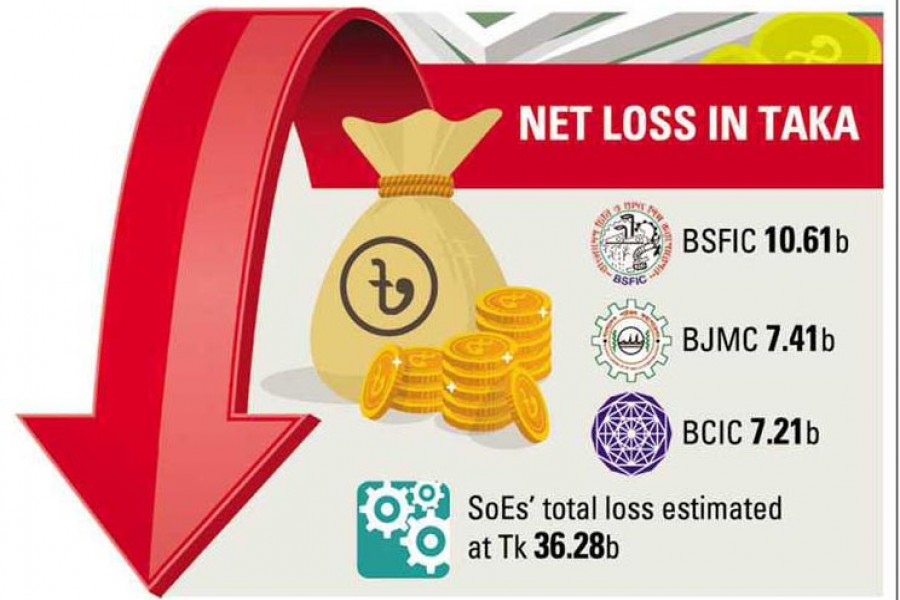The government is set to discard the traditional practice of subsidising loss-making public enterprises to enhance the level of private investment in the coming years, officials say.
It means the units of the state-owned enterprises having maintained poor balance sheets for many years are likely set to be closed down. Instead, private investment, either fully or in joint-venture, will be encouraged there, they said.
According to the officials, the issue of discontinuation of subsidy to the loss-making public entities has already been proposed in the country's 8th five-year plan, which has yet to be disclosed.
When contacted, professor Dr Shamsul Alam, senior secretary at the GED (General Economics Division) of the ministry of planning told the FE that they proposed not to continue subsidies to the concerns making losses in the next planning blueprint.
Mr Alam, who was instrumental in preparing the medium-term development planning, said the government keeps spending public money on such loss-making units where return is close to zero.
"It cannot be continued for a long. That's why, we made such a proposal in the five-year plan. Once it is approved, it will be effective," he said.
Privatisation of the struggling entities was also suggested in the next five year plan, where the ratio of private investment in the next five years would be enhanced to 81 per cent from the previous plan's 77 per cent, he said.
The GED senior secretary said the government will certainly support the profit-making units. "The plan (8th five year) is in its final stage and it will focus more on the open market economy," he added.
Seeking anonymity, a senior government official said the government has recently shut 25 jute mills and six sugar mills as part of the future plan.
Hailing such an initiative, he said, the state-run corporations are now planning to invite local and overseas investors there.
Giving example of six sugar mills, he said, companies from countries like Japan, Thailand, the Netherlands, Germany and the UAE have already shown interest in investing in those.
"It (the fresh investment) could be a joint venture or full. But joint ventures will be given priority," he added.
According to Bangladesh Economic Review 2020 of the ministry of finance, the net loss of the state-owned enterprises was estimated at Tk 36.28 billion.
Bangladesh Sugar and Food Industry Corporation (BSFIC) incurred the highest net loss of Tk 10.61 billion, followed by Bangladesh Jute Mills Corporation (BJMC) Tk 7.41 billion and Bangladesh Chemical Industries Corporation (BCIC) Tk 7.21 billion.
A report of the ministry of finance related to the budget summery of SOEs in FY 2020-2021 said despite the increase in the cost of huge purchases and recruitment of manpower, the losses incurred by state-owned non-financial institutions have been growing due to the reduction in value a worker adds.
Blaming corruption and mismanagement for the sorry state of the public enterprises, the report also mentioned that productivity is much lower than the wages of the workers in the units.
Research director at the Centre for Policy Dialogue (CPD) Khondaker Golam Moazzem hailed the move, saying that it will help the government slash its huge subsidy burden that feeds loss-making enterprises year after year.
Referring to the past bitter experience of the Privatisation Commission, he said, the government can use agencies like the Bangladesh Economic Zones Authority (BEZA) to attract private investment to set up various production bases there.
"It could be fruitful. But the most important part is the payment of all dues of the workers," he noted.
But the public entities in the service sector should not be privatised, Mr Moazzem said, adding that loss-making enterprises are not only hurting the government, but also the market.
When the government comes out of the market, it will create a positive signal by ensuring competitive pricing, which will entice investors, according to him.


